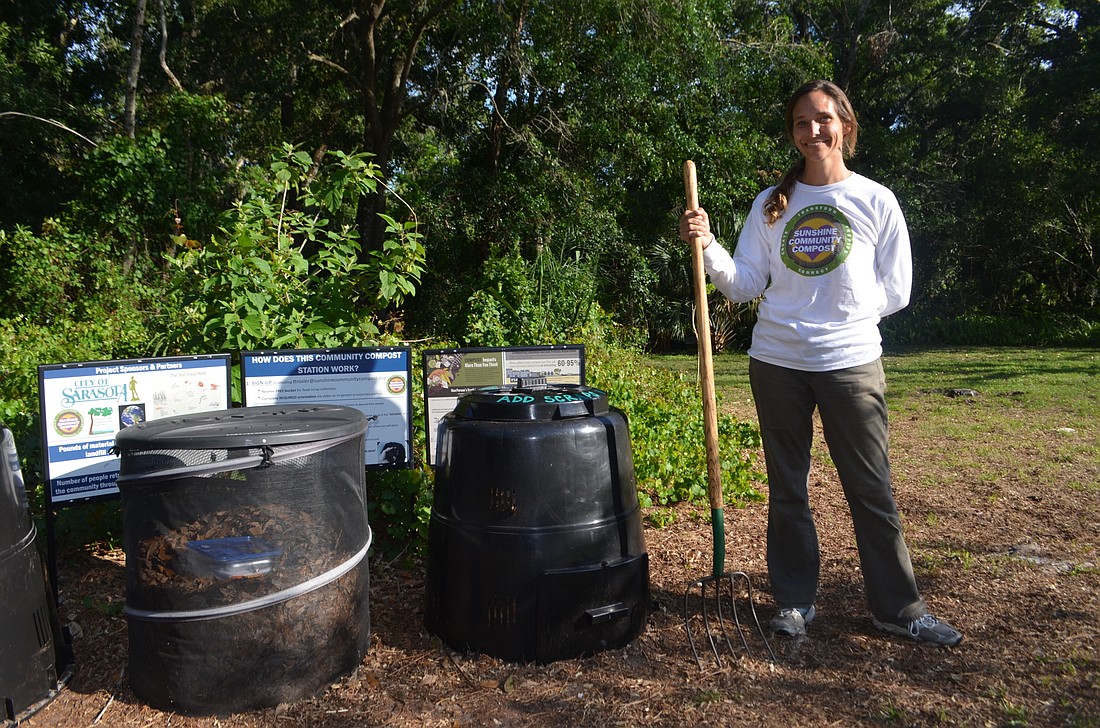- April 19, 2024
-
-
Loading

Loading

Every week, Tracie Troxler spends a few hours in Arlington Park standing just behind the recreation center, waiting to help anyone who wants to learn more about the bins of garbage and leaves behind her.
Troxler is the president of Sunshine Community Compost, a nonprofit organization serving Sarasota and Manatee counties. The group has worked with the city since early 2017, when it launched a community composting pilot project in Gillespie Park.
Sunshine Community Compost set up a composting station within the park and held an informational meeting for neighborhood residents. The concept behind the project was to make it easier for those inexperienced with composting to learn more about the process, which turns decomposing organic matter into a nutrient-rich soil enhancer.
Since February 2017, more than 3,000 pounds of waste has been diverted from landfills in Gillespie Park. In October 2017, Sunshine Community Compost partnered with the Sarasota Bay Estuary Program to launch another site at North Water Tower Park. In March, the city sponsored a third at Arlington Park.
More than 50 households in the city are participating. That doesn’t include people who have grown comfortable enough with composting to do it at home.
Even those who are more experienced often opt to deposit their waste at the neighborhood site, offering help for those who are newer to the system. Troxler said this allows more established sites to become self-sustaining, with a leader living in the area providing the guidance Troxler did initially.
It also helps foster a sense of community for residents. Troxler makes a point of introducing anyone who comes to the composting sites to one another, creating a connection between neighbors.
“People like to come see each other,” Troxler said. “The whole point of community compost is connecting people to each other and the planet.”
The city is playing a more passive supporting role, but it’s still something that excites Sustainability Manager Stevie Freeman-Montes. As the programs grow, Freeman-Montes said the city will look for ways to offer space and other resources in other portions of the city if interest exists.
“We’ve been seeing how we can support it, because it’s helpful for the city’s goals of waste diversion,” Freeman-Montes said.
Troxler is optimistic the initiative can continue to grow. She encouraged residents who want to see a composting site in their neighborhood to reach out to further explore the feasibility. She’s also eager to extend the program into other places where people congregate — offices, schools and churches could offer even more opportunities to divert waste.
“We want to be able to go where people want to see these programs happen,” Troxler said.